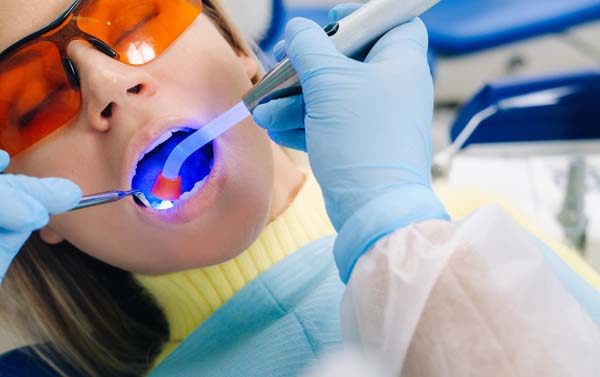How a Good Daily Oral Routine Is Vital for Preventive Dentistry

Practicing preventive dentistry at home allows you to reap many benefits for your general health. Brushing and flossing every day is a basic way of keeping your mouth in good shape. Having healthy teeth and gums helps support your whole body’s health. If you want to find out why good everyday dental hygiene is important for preventive dentistry, here are the details.
The importance of preventive dentistry
Preventive dentistry must become second nature to everyone. This practice prevents expensive dental treatments and restorations. A patient’s insurance plan could then cover the majority or even all of the preventive dental treatments. Patients without dental insurance tend to pay less during a dental visit. It is less expensive to have a dental cleaning than to have a filling or a crown.
Being strict with dental care helps dental patients maintain healthy gums and teeth. This lowers the risk of gum disease and tooth loss. Oral issues are painful. These problems affect the nerves in the mouth. The pain can be debilitating. Preventing the onset of dental problems prevents pain.
A healthy mouth can also prevent chronic diseases such as Alzheimer’s and cardiovascular problems. Studies show a connection between one’s oral and general health. That is why it is important to keep gums and teeth clean every day. Failing to do so can mean putting the entire body at risk.
Daily oral habits
An individual can contribute to preventive dentistry by being proactive in keeping teeth and gums clean at home or at work. Brushing and flossing at least once every day are good practices. Dental products must be effective in cleaning and protecting teeth and gums. Using a mouthwash can improve the effects of brushing and flossing. The liquid can go through tiny gaps and rinse away dislodged particles after flossing and brushing.
Avoiding sugary foods and drinks also helps keep the mouth healthy. The sugars tend to gather on the teeth. This causes issues like cavities. Consuming enough fluoride also ensures more strength and protection for teeth. Public water systems often have fluoridated water. Fluoride-rich toothpaste and mouthwash can supplement the fluoride needs of people without fluoridated water.
Dental visits
Preventive oral care at home needs support from the dentist. Keeping dental appointments keeps plaque and tartar away from teeth. Gums experience professional stimulation from the electric brushing. This encourages healing. It also triggers the flow of more nutrients into gums and teeth. Dentists recommend at least two dental checks in a year to keep the mouth healthy.
Boosting general health
Proper dental hygiene aims to prevent and remove plaque. It also prevents the collection of tartar, tooth decay, and periodontitis. This strengthens preventive dentistry. Studies show a direct connection between dental health and general health. Maintaining good oral health prevents the onset of diseases, such as Alzheimer’s disease, cardiovascular ailments, and diabetes. Preventive dentistry can boost one’s general health.
Preventive dentistry can keep your oral cavity and your body healthy
Daily brushing and flossing can help establish preventive dental care at home. You can support your daily dental care with regular visits to your dentist. These strengthen your preventive dentistry practices. Sticking to preventive dental care ensures your general health. Good oral hygiene practices and regular dental visits can implement preventive dentistry more. This will give you a chance at optimal oral and general health.
Are you considering having a preventive dentistry procedure in the Tyler area? Get more information at https://www.timsmithdental.com.
Check out what others are saying about our dental services on Yelp: Preventative Dental Care in Tyler, TX.
Recent Posts
Preventive dentistry deals with dental procedures to prevent dental issues, and it is critical for anybody who wants to keep their natural teeth for the rest of their life. Dentists used to spend most of their time treating dental issues rather than preventing them.Due to people's overly busy schedules, it is easy to put off…
Preventive dentistry can support your efforts to keep your mouth healthy, including practicing good oral hygiene, eating a balanced diet, and avoiding things that can damage your teeth and gums. Good oral hygiene goes a long way in helping to prevent common dental issues, such as tooth decay and gum disease, but sometimes it is…
The role of preventative dentistry is to minimize the risk of future dental issues in patients. Read on to learn some tips that encourage the prevention of oral issues. If you have experienced and treated dental issues in the past, you will attest that it is better to prevent them from happening in the first…
A dental deep cleaning is an in-depth cleaning procedure that is typically done by a dentist who offers periodontal services. These cleanings are called "deep cleanings" because they go much deeper beneath the soft tissues than a traditional cleaning would. During a dental deep cleaning, a general dentist will scrape beneath the gum tissues and…


